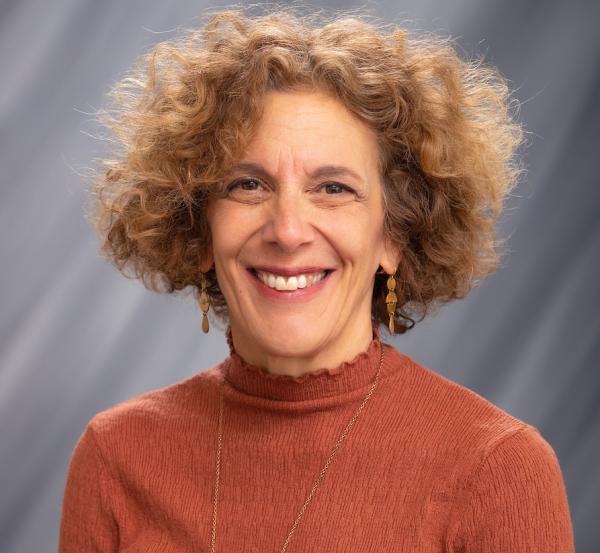Tagged: “Dr. Robert Enright”
Forgiveness Education Is Peace Education
A 10-week forgiveness education curriculum can be an important component of peace education for students according to a newly published study by Dr. Suzanne Freedman, a Professor of Educational Psychology at the University of Northern Iowa.

Dr. Suzanne Freedman, Professor, Co-chair of the College of Education Diversity, Equity & Inclusion Committee, University of Northern Iowa.
Dr. Freedman, a long-time research associate of International Forgiveness Institute co-founder Dr. Robert Enright, conducted the project with three classes of fifth graders. The resulting study was published in the April issue of Peace and Conflict: Journal of Peace Psychology, an American Psychology Association (APA) publication.
The forgiveness education curriculum used for the project was jointly developed by Drs. Freedman and Enright and employed the Process Model of Forgiveness developed by Dr. Enright. The project incorporated Social-Emotional Learning (SEL) approaches that taught students healthy ways to express anger and other feelings, understand the perspective of others, and practice empathy and kindness.
This article illustrates how forgiveness education can be infused into the curriculum and the importance and benefits of doing so. Readers will learn more about forgiveness as well as how promoting forgiveness as a virtue to students can reward the forgiver, the forgiven, and society at large.
Dr. Suzanne Freedman
“Results from this study illustrate that a 10-week forgiveness education curriculum can be an important component of peace education for fifth grade students,” according to the published report. “Students showed increased forgiveness toward a specific offender and increased knowledge about forgiveness after receiving the education, and students’ verbal reports illustrate that they enjoyed and benefited from this specific curriculum using children’s literature.”
Learn more:
Read the full study – “Forgiveness education as a form of peace education with fifth-grade students: A pilot study with implications for educators.”
The Value of Forgiveness – An article outlining the benefits of forgiveness and the forgiveness education work of Dr. Suzanne Freedman at the University of Northern Iowa.
It’s Okay to Not Be Okay – A guest blog by Dr. Freedman on the importance of helping teens understand the role forgiveness plays in their psychological health.
Greater Good in Education Promotes Forgiveness/Character Education – An internationally-acclaimed organization has created an entire “best practices” forgiveness component for educators based on Dr. Freedman’s 5th grade curriculum guide.
The Psychology of Interpersonal Forgiveness – In this article written for SEL in Action, a publication for educators, Dr. Freedman debunks several misconceptions about forgiveness.
Are there acts so terrible that you should not, as you say, give a gift to the other?
Some people will not forgive certain people for certain acts. Yet, other people will forgive others for the exact same kind of act. Thus, it seems to me that it is not the act itself that is out of bounds to forgiveness. Instead, the one who was injured is not ready to offer forgiveness. We have to be gentle with people under these circumstances. We are not all ready to forgive others at the same point of the injury. We have to be careful not to condemn those who need more time or who are ambivalent about forgiveness in a particular circumstance.
I am interested in helping my children learn about forgiveness and learn to forgive. Yet, I am worried that this might force them into forgiving and therefore turn them away from it. What advice do you have for me on this important issue?
A key is to try fostering softened hearts in the children toward other people. You can keep their little hearts soft by talking about forgiveness with them. Do not force this upon them. Let them be drawn to it because forgiveness in its highest form is an expression of love. Let them see this love, experience it, and then offer it when they are ready. You can use teachable moments on forgiveness in the home, such as when there are conflicts between the children. You can point out forgiveness themes in stories and films as other teachable moments. Let them see and experience forgiveness so that they, themselves, begin to see the beauty and importance of forgiveness.
I am in a close relationship with someone I hurt. I have asked for forgiveness from her but I keep getting ignored. Does it ever get to a point that I can demand forgiveness when I know that the other person is just being stubborn?
I sympathize with your frustration. You are ready to be forgiven and the other is not ready to give it to you. You should realize that forgiveness is not something that you can demand from someone. That person is not obligated in an ethical sense to give forgiveness until she is ready. Some religions ask a person to forgive under certain circumstances (such as happens in some of the rituals at Yom Kippur in the Jewish faith, for example). If the one from whom you are seeking forgiveness is under no religious obligation to forgive, I suggest three things: patience, patience, and patience. A little encouragement from you for her to forgive probably would be a good idea, but done sparingly and gently.
My father abandoned our family when I was 6 years old. I am now grown, in college, and he has come around now that the pressure is off. He wants to establish a relationship with me, but I do not even know him. Does it seem kind of phony to now go ahead with this?
It is never too late to forgive. You see your father’s mistakes. I think that he sees them, too. You surely have a right to your anger. At the same time, you could give your father a huge gift of mercy and aid your own emotional healing if you have mercy on him and forgive. It will take a strong will and courage for you to do this. You will know if and when you are ready.



